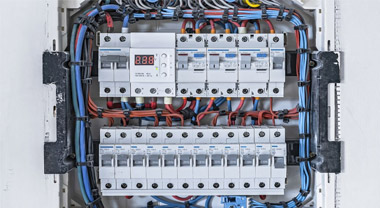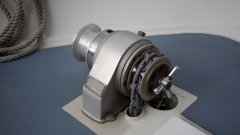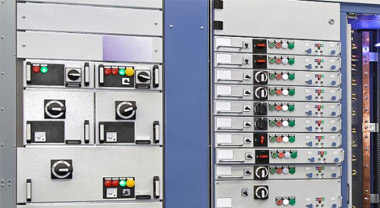does a surge protector prevent tripping circuit breaker?
Have you ever experienced a circuit breaker that keeps tripping in your home? It can be frustrating and disruptive, but more importantly, you may wonder if it poses any danger. In this article, we will explore the causes of a tripping circuit breaker and discuss whether it is a cause for concern. By understanding the underlying reasons for circuit breaker trips, you can take appropriate actions to ensure the safety and reliability of your electrical system.

Table of Contents:
- What Causes a Circuit Breaker to Trip?
- Is a Tripping Circuit Breaker Dangerous?
- When Should You Be Concerned?
- How to Address a Tripping Circuit Breaker
- Preventing Circuit Breaker Trips
- Conclusion
What Causes a Circuit Breaker to Trip?
A circuit breaker is designed to protect your electrical system from overloads, short circuits, and faults. When the flow of electricity exceeds the rated capacity of the circuit, or when there is a fault in the wiring or connected devices, the breaker trips to interrupt the power and prevent potential hazards.
Common causes of circuit breaker trips include:
- Overloaded Circuit: Plugging in too many high-wattage appliances or devices on a single circuit can exceed its capacity and cause the breaker to trip.
- Short Circuit: A short circuit occurs when a hot wire comes into contact with a neutral wire or a ground wire, resulting in a surge of current that can trip the breaker.
- Faulty Wiring: Damaged or deteriorated wiring can create resistance and heat, leading to circuit overloads and breaker trips.
- Faulty Appliances: Defective or malfunctioning appliances can cause electrical faults, overloads, or short circuits, triggering the breaker.
- Ground Fault: A ground fault happens when a live wire comes into contact with a grounded surface or a person, causing the breaker to trip and prevent electric shock.
Is a Tripping Circuit Breaker Dangerous?
In most cases, a tripping circuit breaker is not inherently dangerous. It is a safety mechanism designed to protect your home from potential electrical hazards. When the breaker trips, it cuts off the power to the affected circuit, reducing the risk of electrical fires, shocks, or further damage.
However, while the tripping itself is not dangerous, it can indicate an underlying problem that needs to be addressed. Ignoring frequent circuit breaker trips or repeatedly resetting the breaker without investigating the cause can lead to safety issues in the long run.
When Should You Be Concerned?
Although a tripping circuit breaker is generally not dangerous, there are situations where you should be concerned:
- Frequent Tripping: If your circuit breaker frequently trips, it may indicate an overloaded circuit, faulty wiring, or a defective appliance. Consult a qualified electrician to evaluate and rectify the issue.
- Burning Smell or Scorch Marks: If you noticea burning smell or scorch marks near the circuit breaker panel or outlets, it is a sign of a serious electrical problem. Immediately turn off the power and contact a licensed electrician to investigate and repair the issue.
- Hot Outlets or Switches: If your outlets or switches feel hot to the touch, it could indicate a wiring issue or an overloaded circuit. It's essential to address this problem promptly to prevent electrical fires or damage to your electrical system.
- Tripping with Minimal Load: If the circuit breaker trips even when there is a minimal load on the circuit, it may suggest a fault in the wiring or a defective breaker. This requires the attention of a professional electrician to diagnose and resolve the problem.
- Repeated Tripping of Different Circuits: If multiple circuits in your home are tripping frequently, it could indicate a more extensive electrical issue, such as an overloaded panel or a faulty electrical component. It's crucial to have a qualified electrician assess the situation and make any necessary repairs or upgrades.
How to Address a Tripping Circuit Breaker
When dealing with a tripping circuit breaker, follow these steps:
- Identify the Cause: Determine which appliance or circuit is causing the trip. Unplug all devices connected to the circuit and try resetting the breaker.
- Reduce the Load: If an overloaded circuit caused the trip, redistribute the load by plugging appliances into different circuits.
- Inspect for Faulty Wiring: Check for any visible signs of damaged or frayed wires. If you suspect faulty wiring, contact a licensed electrician for further investigation.
- Test Appliances: Plug in each appliance one by one to identify any faulty devices. If a specific appliance consistently causes the breaker to trip, have it repaired or replaced.
- Consider an Upgrade: If your electrical system is outdated or insufficient for your power needs, consult an electrician about upgrading your panel or circuits.
Preventing Circuit Breaker Trips
To reduce the likelihood of circuit breaker trips, consider the following preventive measures:
- Spread Out High-Wattage Appliances: Avoid plugging multiple high-wattage appliances into a single circuit. Distribute the load across different circuits.
- Upgrade Outdated Wiring: If you live in an older home with outdated wiring, consider hiring a professional electrician to inspect and upgrade your wiring to meet modern electrical demands.
- Install Ground Fault Circuit Interrupters (GFCIs): GFCIs are designed to protect against ground faults and electrical shocks. Install GFCI outlets in areas prone to moisture, such as kitchens, bathrooms, and outdoor spaces.
- Regular Maintenance: Schedule periodic electrical inspections to identify and address potential issues before they become major problems.
- Avoid Overloading Extension Cords: Do not overload extension cords with multiple devices. Use them only as temporary solutions and ensure they are rated for the intended load.
Conclusion
In conclusion, a tripping circuit breaker is usually a protective measure to prevent electrical hazards. While it is not inherently dangerous, it indicates an underlying issue that requires attention. Ignoring frequent trips or failing to address the root cause can lead to safety risks and damage to your electrical system. By understanding the causes of circuit breaker trips and taking appropriate action, you can maintain a safe and reliable electrical system in your home.
Remember, if you experience frequent circuit breaker trips, it's crucial to consult a qualified electrician. They have the knowledge and expertise to diagnose and resolve electrical issues effectively and safely. Don't attempt to handle complex electrical problems on your own.
By following preventive measures, such as spreading out high-wattage appliances, upgrading outdated wiring, and installing GFCIs, you can minimize the occurrence of circuit breaker trips and enhance the overall safety of your electrical system.
In summary, a tripping circuit breaker is not inherently dangerous, but it indicates an underlying issue that needs attention. By addressing the cause of the trips and implementing preventive measures, you can ensure the safety and reliability of your home's electrical system. Regular maintenance and professional assistance are crucial in maintaining a secure electrical environment.
Summary:
In this article, we explored the topic of a tripping circuit breaker and its potential dangers. We learned that while a tripping breaker itself is not dangerous, it indicates an underlying problem in the electrical system that needs attention. We discussed common causes of circuit breaker trips, such as overloaded circuits, short circuits, faulty wiring, and faulty appliances. It's important to be concerned if the circuit breaker trips frequently, there are burning smells or scorch marks, outlets or switches feel hot, or if multiple circuits are tripping. We provided steps to address a tripping circuit breaker, including identifying the cause, reducing the load, inspecting for faulty wiring, testing appliances, and considering an upgrade. Additionally, we discussed preventive measures to reduce the occurrence of circuit breaker trips, such as spreading out high-wattage appliances, upgrading outdated wiring, installing GFCIs, and scheduling regular maintenance. By taking these steps and seeking professional assistance when needed, you can ensure the safety and reliability of your electrical system.
Remember, electrical issues can be complex, and it's always recommended to consult a licensed electrician for proper diagnosis and repairs. Your safety should be a top priority when dealing with electrical systems.




